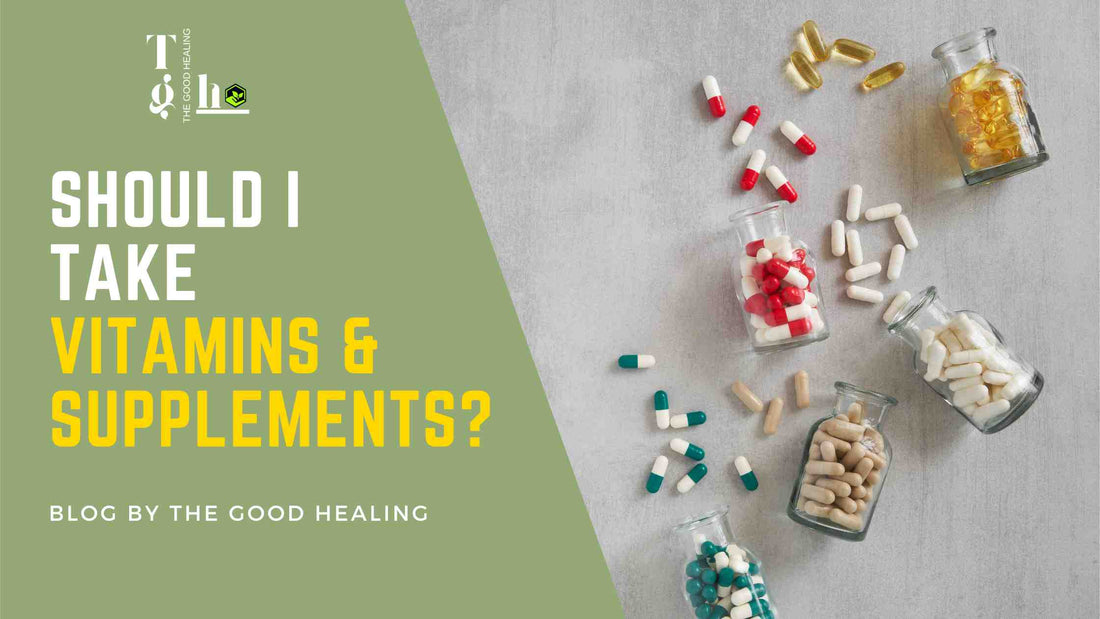Why are we consuming vitamins and supplements? Our ancestors lived without the need for multivitamins, so why are we relying on them? Well, the answer leads us to take a look at what we are consuming. With more than 60% of Americans’ diets consisting of highly processed foods, pasteurized, homogenized, canned, and prepackaged fast food there is less of a chance that the vitamins within the food will survive and give us the nutrients we think we’re getting.
While a variety of folks grow their own vegetables and pick their own fruit, most of the country is still purchasing and consuming packaged, store-bought fruits and vegetables. Which aren't as healthy as we think they are. The longer fruits and vegetables are off the vine, the faster they start to lose their nutritional value. This may become crucial considering your body relies on vitamins to strengthen your immune system, and prevent colds and other viruses. When someone is vitamin deficient they are less likely to clot when they are bleeding. Vitamins are much more important than we think, and the average diet does not include all the vitamins needed to keep the body strong and fit. Especially for our fellow vegans who may not be consuming enough vitamin B12 or omega 3s that come from animal products.
You’d think a good multi-vitamin is your best-suited option, but here again, you might be misled into thinking that 100% of the USDA recommended dosage is enough. In that case, they mean 100% total, not 100% of every vitamin. Think about it, they will not possibly pack the correct amount of vitamins that you need into a “one pill a day”, and most multivitamins sold in your local market are filled with fillers and preservatives. To get the best quality consider visiting your local food co-op and acquire some natural, all-inclusive vitamin supplements. Along with eating well, the right supplements contain everything you would need for a balanced supply of vitamins with no preservatives and no fillers.
For example, let us take a look at the B vitamins. You’d need many different types of B vitamins. The foremost typically talked about are usually B6 and B12. It’s typically the most common due to the benefits they provide. For instance, Vitamin B6 helps the growth of red blood cells. Then we have vitamin B12, which supports energy promotion and can help fight Alzheimer’s disease and needed for most vegans. Your B6, B12, and other vitamins need to be in the purest form possible in order to get the best benefits. Now let's take a look back at the history of vitamins. Scientists and surgeons began the discovery of vitamins around 1914. According to The Science Behind the Supplements, the word “vitamin” is a derivation of the Latin word “vita” meaning life. We need vitamins to survive and live a healthy energetic life. As far back as the 17th century, sailors were aware that eating citrus fruits would prevent scurvy. Only later did they realize it was Vitamin C.
Many vitamins nowadays come in the form of liquid. And a plus, now vitamins come with many flavors giving you a better taste. But before you get ahead of yourself head and purchase every vitamin you may be deficient in, keep in mind that it is possible to ‘overdose’ on vitamins, sort of. Water-soluble vitamins such as B and C will be released through your urine if you have taken more than your body requires. In the case of fat soluble vitamins that are absorbed by your body, like vitamins E and D, can cause issues such as nausea, vomiting, diarrhea, and even a rash if over consumed.
It is recommended to get in touch with a homeopath to check for any vitamin deficiencies you may have. Knowing what your body truly needs and the correct dosage will save you lots of money and time. Keep in mind, it is important not to buy multi-vitamins but rather each vitamin individually to make sure you are getting the full benefits.

